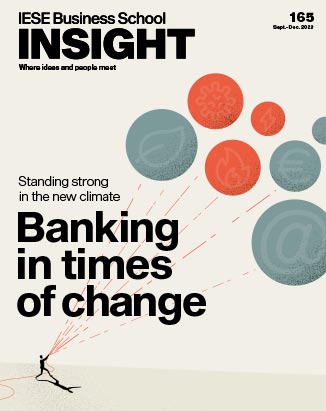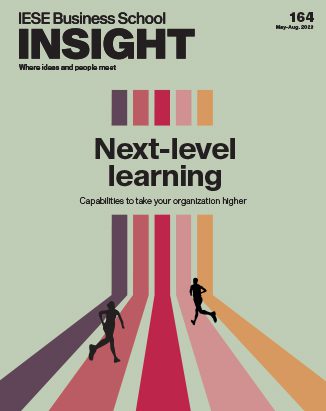IESE Business School
IESE Insight

In conversation
“For AI adoption to be successful, you need to have a system mindset. Here’s a tool to help you target AI at mission-critical activities and make better decisions”
Joshua Gans discusses how to make the most of AI with IESE’s Sampsa Samila
IESE Business School Insight magazine
IESE Business School Insight is our flagship publication, featuring timely reports, inspiring interviews, and research-based articles to help you lead better.











